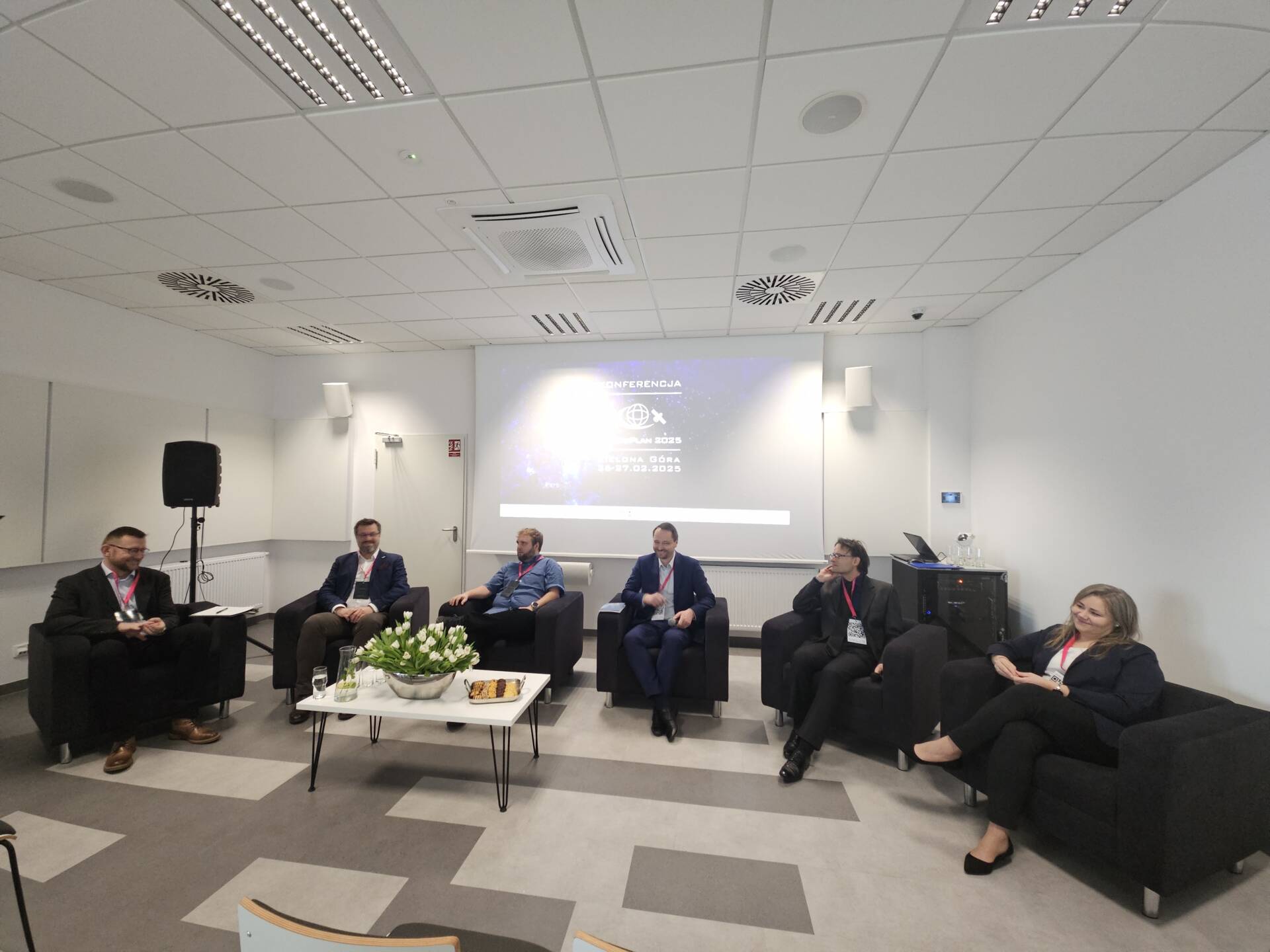
Industry Contact Points at the SatGisPlan conference
On 26 and 27 February 2025, the third edition of the SatGisPlan conference took place. The meeting brought together, among others, representatives of the Industry Contact Points, including representatives of Łukasiewicz-PIAP.
The recurrent event is a platform for the exchange of knowledge and experience from the world of space technology and related areas, such as geoinformatics. Part of the meeting at the Space Technology Park in Nowy Kisielin was a panel discussion entitled ‘Accelerating the future: AI, robotics, innovation and funding in the space sector’. It was organised by representatives of Łukasiewicz-PIAP, within which the Industry Contact Point Industry 4.0 operates, together with representatives of the Industry Contact Point ‘Digital Transformation’ run by Poznań Institute of Technology, also part of Łukasiewicz Research Network. The panel was attended by ICP Coordinator Przemysław Zawodny and by representatives from several Industry Contact Points: Bartosz Meglicki – ICP Przemysł 4.0 from Łukasiewicz-PIAP and Agnieszka Możejko – ICP Digital Transformation from Łukasiewicz – PIT. Also participating in the discussion were Marek Kraft from Poznan University of Technology, Tomasz Gawron from Łukasiewicz – PIT and Paweł Kwiatkowski from ABGi Poland.
The leitmotif of the panel discussion was the role of AI and robotics in space exploration. The participants in the discussion devoted a lot of attention to the achievements of recent years, among which it is worth mentioning the debut flight of a drone in the atmosphere of Mars (‘Ingenuity’, linked to ’Perseverance’) or the first landing on the invisible side of the Moon (‘Chang’e-6’). There was also a discussion about challenges faced by engineers and scientists operating in the space and related sectors today. In addition, differences in the availability of technical information provided by CNSA and NASA were a topic of discussion. This applies to general data as well as extreme cases when referring, for example, to the open-source F Prime system used in ’Ingenuity’.
They also discussed the challenges of implementing the latest AI technologies, based on deep neural networks, in the area of automation and autonomy in space. Problems include limitations due to low energy availability in space missions. Much attention has been paid to the issue of reliability of results generated by AI in the context of critical decision-making. This included the lack of transparency in decision-making processes (‘black box’ effect), AI hallucinations, data overfitting and difficulties in using existing knowledge in new situations, which is crucial in adaptive space missions. The panel also focused on geoinformatics and Earth mapping, including aspects such as climate change monitoring, environmental protection, smart city development or sustainable agriculture. The importance of developing human resources that shape the world of salelite technology, geoinformatics, etc. is emphasised, therefore postgraduates can take advantage of career funding programmes and cascade funding, join international consortia, and take part in competitions organised by the European Space Agency.



